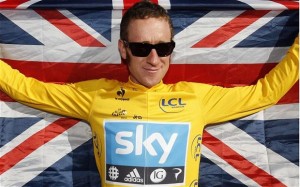The Rising Popularity of Cycling in the UK 2
Historically, cycling has always been something of an unfashionable sport in the UK. This has began to change in recent times, however, thanks largely to the efforts of Tour de France winner Bradley Wiggins and the impact of the London Olympics in the summer of 2012. Wiggins not only became the first British cyclist to win the Tour de France, but he also claimed time trial glory at the Olympics before being crowned BBC Sports Personality of the Year in December. This unprecedented success has triggered a rise in popularity for the sport, as youngsters nationwide look to participate both competitively and as a way of keeping fit.
The Course of Cycling Since 2012: Embarking on an Upward Curve
While Wiggins’ victory in the Tour de France was historic, it was his success in the Olympic Games that really brought cycling into the mainstream conscience. Although the debate continues to rage concerning the cost of the Olympics and the value that it has delivered, there is no doubt that it has inspired the future generation of sports enthusiasts and potential stars. The actual financial cost of the Games came in under budget at £8.92 billion, and the individual cost of £142 per head may be a small price to pay for developing a more active and health conscious generation of children.
Bradley Wiggins’ gold medal at the Olympic time trial marked something of a watershed for British cycling, as it was played out against the backdrop of passionate support and widespread acclaim. This is arguably the first time that a British cyclist has been exposed to such adulation, as the Olympics provided Wiggins with the ideal platform on which to promote both his skill and the sport as a whole. The subsequent reaction has been significant, as a growing number of children look to engage in individual sports and pursue potential careers in cycling, tennis and athletics. Read the rest of this entry →




